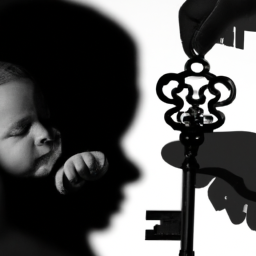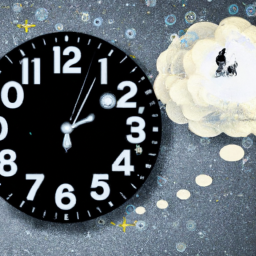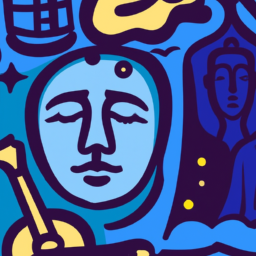As I lay in bed, drifting off to sleep, my mind starts to wander and I am whisked away to a different realm – a realm of dreams. It’s a peculiar and enigmatic place, brimming with bizarre and fascinating elements. But have you ever paused to ponder, who are the creators of dreams?
There are many theories on the creation of dreams. Some scientists believe that dreams are simply a byproduct of brain activity during sleep, while others think that they are a manifestation of our subconscious desires and fears. But regardless of the theory, one thing is clear – dreams are a fascinating and complex phenomenon that have puzzled scientists and psychologists for centuries.
In this article, we will explore the different theories on dream creation, as well as the brain activity that occurs during sleep, and delve into the mysteries of the subconscious mind.
So, let’s dive in and discover the answer to the question, who are dreams’ parents?
Key Takeaways
- Dreams are a complex phenomenon that have puzzled scientists and psychologists for centuries.
- Theories on dream creation include the idea that dreams are a product of our unconscious mind or a way for our brain to consolidate and organize memories.
- Different parts of the brain are involved in dreaming, with the frontal cortex and amygdala playing key roles.
- Dreams reflect and interact with our waking lives, and understanding the mechanisms behind them may help develop a better understanding of the brain and the subconscious mind.
Theories on Dream Creation
You’re probably wondering how your dreams are created, right? Well, there are a few theories out there that might shed some light on the subject.
One of the most popular theories is that dreams are a product of our unconscious mind. According to this theory, our dreams reflect our deepest desires, fears, and emotions that are buried in our subconscious. It’s believed that our brain tries to process and make sense of these emotions while we sleep, resulting in vivid and sometimes bizarre dream scenarios.
Another theory is that dreams are a way for our brain to consolidate and organize memories. This theory suggests that dreams are a byproduct of the brain’s attempt to categorize and store information that we’ve gathered throughout the day. It’s also believed that dreams can help us problem-solve by allowing us to explore different scenarios and solutions in a safe and non-threatening environment.
So, whether our dreams are a reflection of our subconscious or a way for our brain to process information, one thing’s clear – they’re a fascinating part of the human experience. Speaking of which, let’s take a look at what happens in our brain during sleep.
Brain Activity During Sleep
As I drift off into slumber, my brain becomes a bustling metropolis of neuronal activity, reminiscent of a bustling city street during rush hour.
During the different stages of sleep, my brain waves slow down and my consciousness fades away, but my brain cells remain active, firing off messages to each other. This activity is essential for the formation of dreams.
Research has shown that different parts of the brain are involved in dreaming, with the frontal cortex playing a key role in the interpretation of dreams. The amygdala, which is responsible for processing emotions, also plays a part in the creation of dreams.
As I delve deeper into the world of dreams, I can’t help but wonder how my subconscious desires and fears shape the content of my dreams.
Subconscious Desires and Fears
My mind’s hidden desires and fears are like buried treasure, waiting to be uncovered by the mysterious workings of my subconscious.
During sleep, my brain is able to tap into these buried emotions and bring them to the surface through the creation of dreams. These dreams can be filled with vivid imagery, intense emotions, and even physical sensations.
As I lay in bed at night, my subconscious takes control and guides me through a world of my own creation. It is through these dreams that I’m able to explore my deepest desires and fears, without the constraints of reality holding me back.
Whether it’s a recurring nightmare or a pleasant daydream, my dreams give me a glimpse into the inner workings of my mind.
As I continue to ponder the mysteries of my dreams, there are still unanswered questions that linger in my mind. What exactly triggers certain dreams? How can I interpret the meaning behind them?
These questions may never be fully answered, but the journey to understanding my subconscious mind is an ongoing one.
Unanswered Questions
Have you ever wondered about the lingering mysteries of your subconscious mind, such as what triggers certain dreams and how to interpret their meaning? I’ve spent countless nights trying to figure out the answers to these questions.
Despite the numerous studies and research conducted on dreams, there are still many unanswered questions about our subconscious experiences. One of the most perplexing questions is who or what exactly are the parents of our dreams? Is it our own thoughts and emotions, or are there external factors at play?
As we continue to delve deeper into the study of dreams, it’s my hope that we’ll eventually uncover the answers to these mysteries.
Future Directions
You may be curious about where the study of dreams is headed in the future, and there’s no doubt that the possibilities are endless. As researchers continue to delve deeper into the intricacies of the human mind, we may be able to uncover more about the origins and functions of dreams. One possible direction for future research is the exploration of the neural basis of dreaming. With advances in technology, we may be able to observe and measure brain activity during different stages of sleep and dreaming, allowing us to better understand the mechanisms behind our dreams.
Another potential area for future research is the role of culture and society in shaping our dreams. As we learn more about the different factors that influence our dream content, we may be able to gain a better understanding of the ways in which our dreams reflect and interact with our waking lives. The table below outlines some possible avenues for future research in the study of dreams.
| Research Question | Potential Methods | Possible Findings | Implications |
|---|---|---|---|
| What is the neural basis of dreaming? | EEG, fMRI, PET scans | Identify brain regions involved in dreaming, measure brain activity during different stages of sleep and dreaming | Develop a better understanding of the mechanisms behind dreams |
| How do culture and society shape our dreams? | Cross-cultural surveys, content analysis | Identify cultural and social factors that influence dream content | Gain insight into the ways in which our dreams reflect and interact with our waking lives |
Frequently Asked Questions
Who are the biological parents of dreams?
There is no definitive answer to this question as dreams do not have biological parents.
Is there a specific part of the brain responsible for creating dreams?
There isn’t a specific part of the brain responsible for creating dreams. Instead, multiple brain regions work together to produce the surreal experience. Understanding the brain’s activity during sleep remains a fascinating topic in neuroscience.
Can dreams be controlled or manipulated?
Yes, dreams can be controlled and manipulated through techniques like lucid dreaming and visualization exercises. However, the specific content of dreams is largely influenced by the subconscious mind, which can be difficult to control.
Do dreams have any significance or meaning?
Dreams can reveal our subconscious thoughts and emotions. In fact, studies show that 75% of our dreams are negative, often reflecting anxiety and stress. Interpreting their significance can offer valuable insights into our inner selves.
Can dreams predict the future?
Dreams cannot predict the future. They are a reflection of our subconscious thoughts and emotions. While they may contain symbols or messages, they do not have the ability to foretell events or outcomes.
Conclusion
Well, it seems that the mystery of who or what creates our dreams remains unsolved. Despite the various theories and research surrounding the topic, we are still left with unanswered questions.
It’s almost ironic how we spend a third of our lives asleep, yet we still don’t fully understand the inner workings of our minds during this time.
Perhaps one day we’ll uncover the true parentage of our dreams, but until then, we can continue to explore the fascinating world of our subconscious. Who knows what kind of revelations or insights we may discover along the way.
Sweet dreams, my friends.









